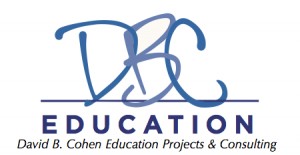Yesterday, The Sacramento Bee ran an op-ed by a trio of education researchers responding to the Vergara appeal ruling. Like many in the plaintiffs’ camp, they’re trying to salvage something from the court’s rejection of the Students Matter legal strategy and arguments. I posted the following response.
[The authors wrote that] “Two courts have now found that the way the state compels districts to handle key personnel decisions results in lower-quality teachers.”
Like other Vergara advocates, the authors are trying to scrape together some kind of moral victory from a few quotes in the appellate court’s ruling. They might prefer that you not bother with details of the unanimous and thorough rejection of the legal strategy and the evidence relied on by the plaintiffs.
The authors also make a nifty logical leap here: they quote the appellate ruling mention of problems arising from “teacher preferences, district policies, and collective bargaining agreements” – which makes no reference to state policies – and then in the next sentence, they write: “Put simply, California’s policies are bad for students.” Like the Vergara plaintiffs, they simply can’t get over the fact that ed code is not the source of the problems they describe.
Thankfully, the appellate court noticed important evidence refuting the plaintiffs’ claims. Here’s one example: several years ago, LAUSD changed its policies, without waiting for changes in ed. code, and gradually effected a 13-fold increase in the number of teachers who were dismissed or chose to leave after negative evaluations. The court also noted, and these authors simply ignored, that the challenged statutes do have some positive effects on teaching and school quality, by promoting academic freedom, attracting and retaining teachers as a whole, and protecting teachers who might be unfairly targeted for dismissal for a variety of non-academic reasons.
Existing ed. code, though imperfect, is working reasonably well in districts that are well run. Could the laws be improved? Certainly. Does the relentless attack on teachers and unions – in courts, legislatures, and the media – create conditions for fruitful negotiations and compromise? No. If we want to make progress here, we need to recognize that of course teachers want to be more effective, and validate their insights and legitimate concerns in crafting better policies.
